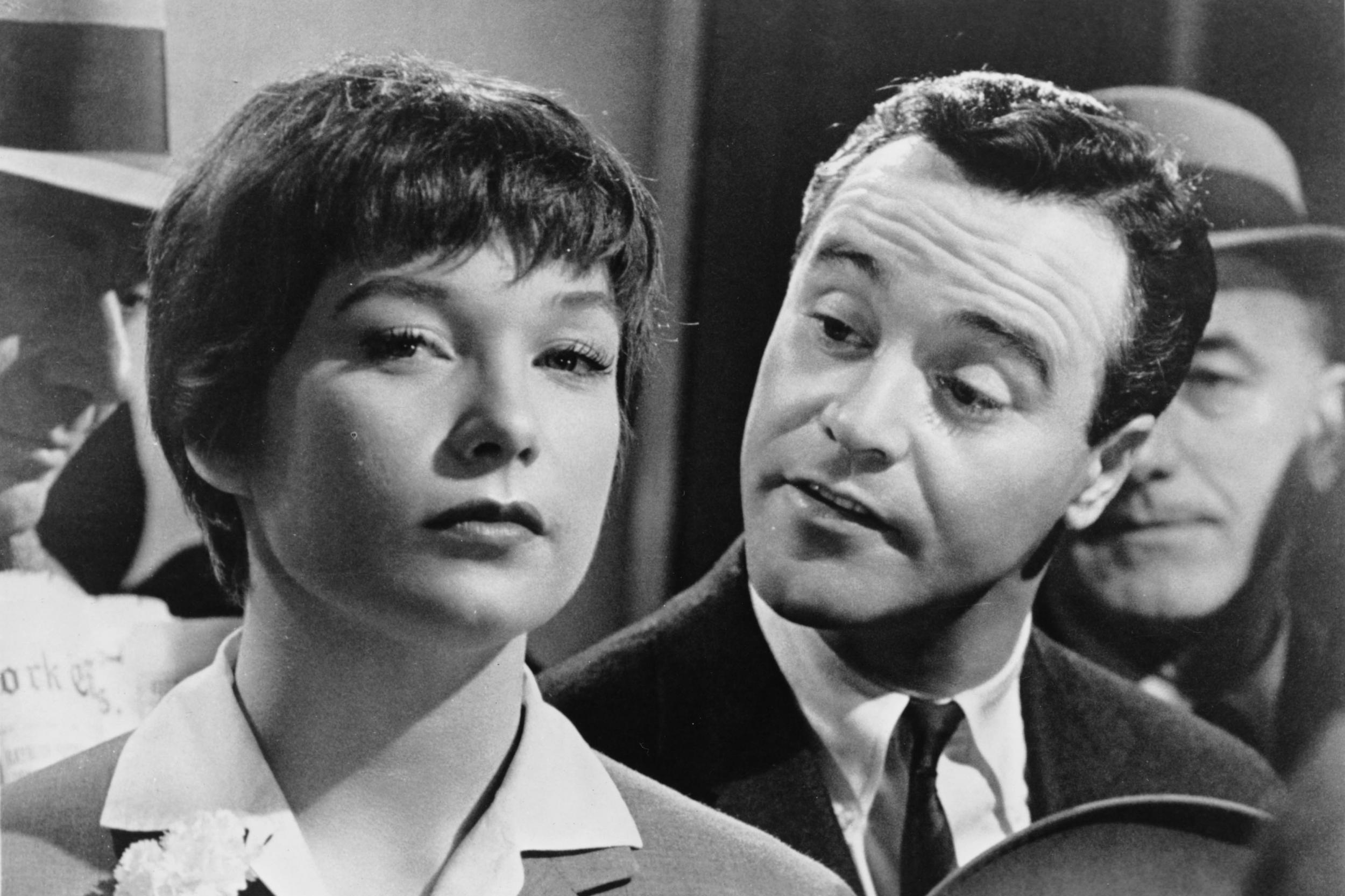Why The Apartment is the greatest Christmas film of all time
Billy Wilder's 1960 classic reminds us of the true spirit of Christmas – togetherness, and hope for the future

The Apartment is the perfect Christmas film. Not Christmas as we'd like it to be – roaring fires, jingle bells, snow – but Christmas as it is in reality. Sometimes joyful, sometimes mundane, sometimes lonely. The holiday season has always offered introspection: we hope for a moment of thankfulness, but life in its strange cruelty can, for some, feel like the knife is only being dug deeper, as hard as we may try to stifle the prospect.
But even in the bleakest of Christmases, there's always hope. It thrives on it. And it's precisely hope that Billy Wilder's beloved 1960 film offers the world. A turning point even for its director, in his own way, after years of fixating on high-flung stories drenched in Hollywood glamour and the affairs of writers, detectives, playboys and pilots; all delivered with a healthy dose of cynicism, too, peaking with 1951's bleak Ace in the Hole. But all that changed with The Apartment, a film that deals with love. Real love. A kind quiet, pained, but with eyes fixed on the stars above.
CC Baxter (Jack Lemmon) and Fran Kubelik (Shirley MacLaine) are beaten down by the world. Their souls are mush. He's a bottom-rung office worker trapped in the most uneasy of agreements: loan his apartment out to his womanising superiors so they can continue their affairs in comfort and secrecy, and he can hope to find himself with that coveted promotion.
She's an elevator girl who happens to be an unlucky participant in one of those affairs, desperately in love with boss Jeff D Sheldrake (Fred MacMurray). He promises he'll leave his wife; she's too smart to fall for his lies, too foolish to leave him altogether.
As Kubelik puts it, “Some people take, some people get took. And they know they're getting took and there's nothing they can do about it.” It's a cycle they're trapped in merely because they never lacked the empathy needed to be a taker, to exploit weakness, but had only a heart so ready to give. Just the kind of attitude that gets you left out in the rain, bitter as that revelation may be.
For Baxter, the sensation is literal: he's left to wander the freezing streets while his apartment is used for illicit thrills. Kubelik is abandoned by her lover when he must speed home to trim the Christmas tree with his family. As holiday preparations bubble away in the heart of New York City, it's like they're peering in through the frosted glass to glimpse at the warmth inside. During the holidays, those feelings of isolation take on a stark vibrancy.
It's overwhelming for Kubelik. Alone in the strange, alienating environment of Baxter's apartment (she doesn't know it's Baxter's apartment at the time), she grabs a bottle of pills and attempts to end her life. His isolation, meanwhile, is fuelled by the discovery that Kubelik, the woman he's become so infatuated with, is the mistress Sheldrake so belittingly speaks of. He tries to find brief relief in another lonely soul, bringing home a woman who can't bear to return to her empty apartment, her husband locked in jail.
The Apartment is a comedy that fully, and so empathetically, deals with suicide. At its darkest centre, the cha-cha tones of the record player cut to silence as the doctor tries to revive an unconscious Kubelik, slapping her over and over again as Baxter flinches with every hit.
All watched over by Baxter's drooping Christmas tree, draped in a few pieces of stringy tinsel – quite the desolate picture. Baxter phones Sheldrake to tell him what happened. He answers in his silk robe, a lavish suburban Christmas glimmering behind him. He wants nothing to do with it.
The key to The Apartment's magic, however, is that it can both acknowledge how bitter the touch of loneliness can really feel, especially at a time of year so riotously focused on the idea of thankfulness, while also offering hope. Great hope. A true belief that every lost soul has a life preserver somewhere out there, waiting.
In Kubelik's recovery, both come to understand that their worth can be unlocked in each other. That they can piece each other back together like a shattered vase lovingly reconstructed. Baxter confesses he also tried to end his life once. It comes out in such an offhand way, as if he was shedding off a coat of the past.
We can populate our streets with ringing bells and bustling shoppers but, at the end of the day, Christmas lives in its quietest moments. In togetherness, wherever we may find it. Family and friends, perhaps, but if those things are far out of reach, even in strangers. “Ya know, I used to live like Robinson Crusoe,” Baxter says. “I mean, shipwrecked among eight million people. And then one day I saw a footprint in the sand and there you are.” No one is too broken. And no one is too lost not to be found.
The Apartment will be re-released in a 4K-restored version on Blu-ray from Arrow Films on 18 December. The deluxe collector's edition includes new featurettes and a 150-page hardcover book featuring essays on the film
Bookmark popover
Removed from bookmarks